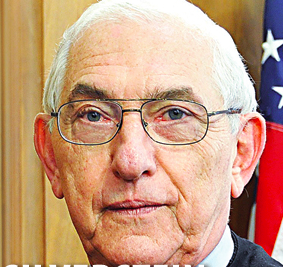BURRILLVILLE – Is it legal for the town of Johnston to resell water it receives from the Providence Water Supply Board to a private commercial developer in another town?
The question is the focus of a Superior Court suit brought by the town of Burrillville and the Conservation Law Foundation against Johnston over the decision to sell water from the Scituate Reservoir to Invenergy Thermal, LLC. The Chicago- based company hopes to build a power plant off of Wallum Lake Road in Burrillville, and is legally required to identify how it will get water to cool the facility’s generators.
The answer, it seems, will come down not just to interpreting what lawmakers meant by the word “ordinary” when developing the applicable statute a century ago, but also by how that law has since been applied.
And after a hearing on Monday, Aug. 20, the verdict was still unclear.
According to testimony presented this week, the issue will be determined by an act passed by the General Assembly in 1915 to govern how PWBS would sell water from the Scituate Reservoir to other cities and towns. It states that the water sold to Johnston is “for use for domestic, fire and other ordinary municipal water supply purposes.”
Lawyers for Johnston and Invenergy argue that he 1915 law leaves room for the sale of water for industrial purposes. They say it can be used to cool the proposed Clean River Energy Center – a 1,000-megawatt natural gas-burning power plant currently under review by state regulators.
Among those in agreement that the sale of water to the power plant is not “ordinary” is Attorney General Peter Kilmartin, who issued an amicus brief in support of the suit earlier this month.
Superior Court Judge Michael Silverstein heard arguments in the case, but did not render a decision on Monday, saying that the meaning of the law is “ambiguous.”
“Since the 1915 Act has been reenacted from time to time, most recently in 1986, there have been substantial advancements in technology, science and manufacturing,” Silverstein said in his decision. “The Court finds it could lead to an ‘absurd result’ if the Court failed to authorize discovery as to how the phrase here in question has been applied by the municipalities subject to it.”
The judge added that “this phrase is reasonably susceptible to more than one meaning,” and challenged both sides to “find evidence that may reveal how the phrase ‘other ordinary municipal water supply purposes’ may have been interpreted and applied since 1915.”
After both parties present evidence found during the discovery period assigned by the judge, Silverstein is expected to issue a ruling. The longtime judge retires September 30.







